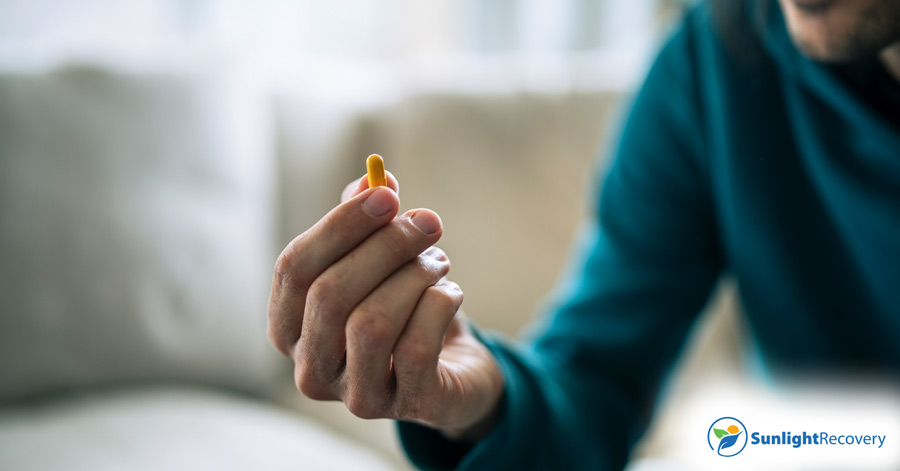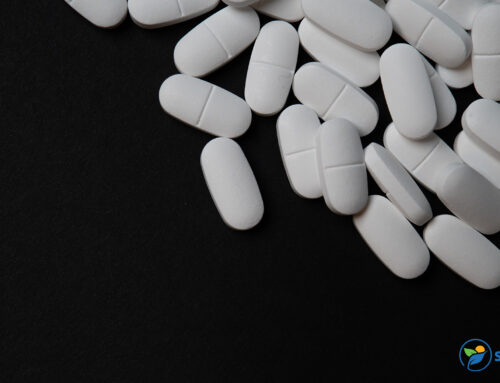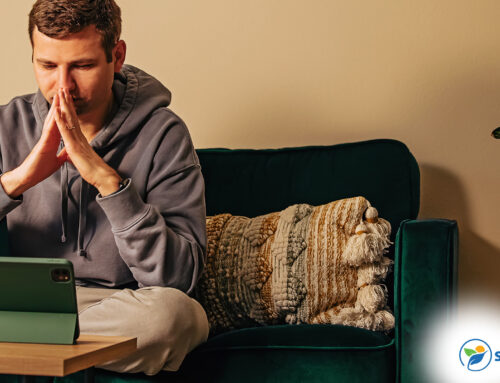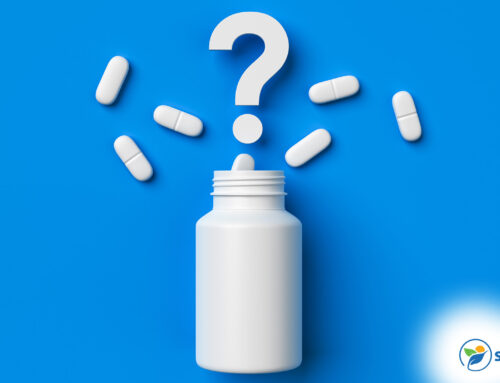As of 2023, roughly 3 million Americans have a history of opioid painkiller abuse. Furthermore, the 500% increase in opioid-related overdoses between 1999 and 2020 has put painkiller abuse firmly in the spotlight, with experts calling the issue an epidemic. Let’s explore how opiate addicts’ behavior changes, how to support someone you know and where to access professional help.
Opiate Addicts’ Behavior: What Are the Signs?
The symptoms of opioid misuse can be challenging to spot, especially if the person takes prescribed medication. Fortunately, the chance of someone becoming addicted to correctly prescribed painkillers is relatively low — around 10% of people who take opioids for chronic pain develop an addiction. The risk is significantly higher if your loved one uses unprescribed opioid medications.
While opioid addiction can cause various symptoms, many people who misuse these medications continue working and following through on their responsibilities. However, you may notice your loved one withdrawing from activities they usually enjoy. People who abuse opioids typically feel a strong desire to continue using, even if the consequences are unpleasant. Opiate addicts’ behavior can also include:
- Taking more than the prescribed dose or using medication when they’re not in pain
- Mood swings
- Difficulty sleeping, altered sleep patterns or daytime sleepiness
- Obtaining opiate prescriptions from multiple doctors
- Buying or borrowing medication from illegal sources
- Expressing a desire to have a backup supply of medication
- Risky decisions
- Claiming to have misplaced medication to obtain further prescriptions
It can be distressing when someone you care about shows signs of opioid addiction. Therefore, you may experience anxiety about your loved one’s opiate use. It’s common to avoid spending time with the person who’s abusing opiates due to their mood and behavior changes. In some cases, friends and family members feel the need to make excuses to others for the person’s opioid symptoms. If you’ve noticed changes in your own behavior and mental well-being, it could be a sign your loved one’s opioid use is problematic.
Communicating With Empathy
It’s understandable to feel apprehensive about talking to your loved one about their opiate use. Many people avoid these difficult conversations for fear of conflict, alienating the affected person or damaging the relationship. However, broaching the topic can often help the person acknowledge their opioid misuse, ask for support and take the first step toward recovery.
You don’t need to approach the topic of opioid abuse alone if you feel worried or uncomfortable. You may find it helpful to have another person present during the conversation. Alternatively, you could seek help from a qualified addiction counselor.
Approaching discussions with empathy can help you have constructive conversations about opioid misuse. It’s natural to feel upset, confused or even angry about your loved one’s opiate addiction, but it’s important to avoid using blaming or shaming language. Opioid addiction is a disease, and the reasons for misuse are usually complex. Treating your loved one with compassion can make it easier for them to seek help and reduces the stigma surrounding addiction.
Seeking Professional Help
As a friend or family member of someone misusing opioids, you can play an important role in their treatment and recovery. However, your loved one will need help from experts to diagnose and treat their opioid addiction and deal with the underlying issues that led to substance misuse.
Many professionals can support your loved one on their recovery journey. Doctors can prescribe medications to treat opioid misuse disorder in a process called medication-assisted treatment (MAT). These medications can help reduce painkiller use, lower the risk of overdose and increase the likelihood of recovery. Your loved one may also require behavioral counseling to help them deal with the emotional and social aspects of opioid misuse.
Withdrawing from opiates can cause physical and psychological symptoms. Therefore, many people need inpatient or outpatient treatment to help them withdraw safely. Many mental health facilities offer multiple treatment options to suit each person’s unique circumstances in a dignified, compassionate environment.
Supporting someone through opioid addiction recovery can take its toll on your own physical and mental well-being, but you don’t need to face this challenge alone. Many addiction recovery organizations offer guidance to friends and family members, and you could also join an online support group.
Supporting Recovery
Creating a supportive environment can help your loved one on their recovery journey. What helps varies significantly from person to person, so it’s worth asking them what support they need. Focus on being there for your loved one as they move toward a healthy, fulfilling future, and avoid actions that could unintentionally enable further substance misuse. If you’re unsure how to help, a trained addiction counselor can offer guidance.
Offering nonjudgmental support and showing the person they’re valued can significantly benefit their recovery. Many people struggling with opioid addiction withdraw from friends and family, making it harder to recover. Including your loved one in social activities and making time to talk can reduce any feelings of loneliness, isolation or shame.
It’s also worth knowing that many people with addictions experience relapses during recovery. Research shows that around 60% of people recovering from substance abuse disorders relapse at least once, but that doesn’t mean treatment won’t ultimately succeed. Continuing to support your loved one following a relapse can help motivate them to remain in treatment and explore new options with their mental health providers.
Finally, taking care of yourself is essential when supporting someone through recovery. It’s fine to assert healthy boundaries to keep yourself well and safe, and you shouldn’t be afraid to ask for support. Ensure you look after your own physical and emotional needs, and consider talking to your health care provider if you experience symptoms of depression or anxiety.
Opiate Abuse Education
Learning more about painkiller abuse can help you recognize the signs of opioid addiction and understand your loved one’s experiences. Addiction recovery organizations can provide education and counseling for friends and family of people dealing with substance abuse disorders.
Get Help Today
The trained mental health professionals at Sunlight Recovery can create a personalized treatment plan to help your loved one recover from opioid addiction. Contact us today to discuss treatment options with a member of our knowledgeable team.






